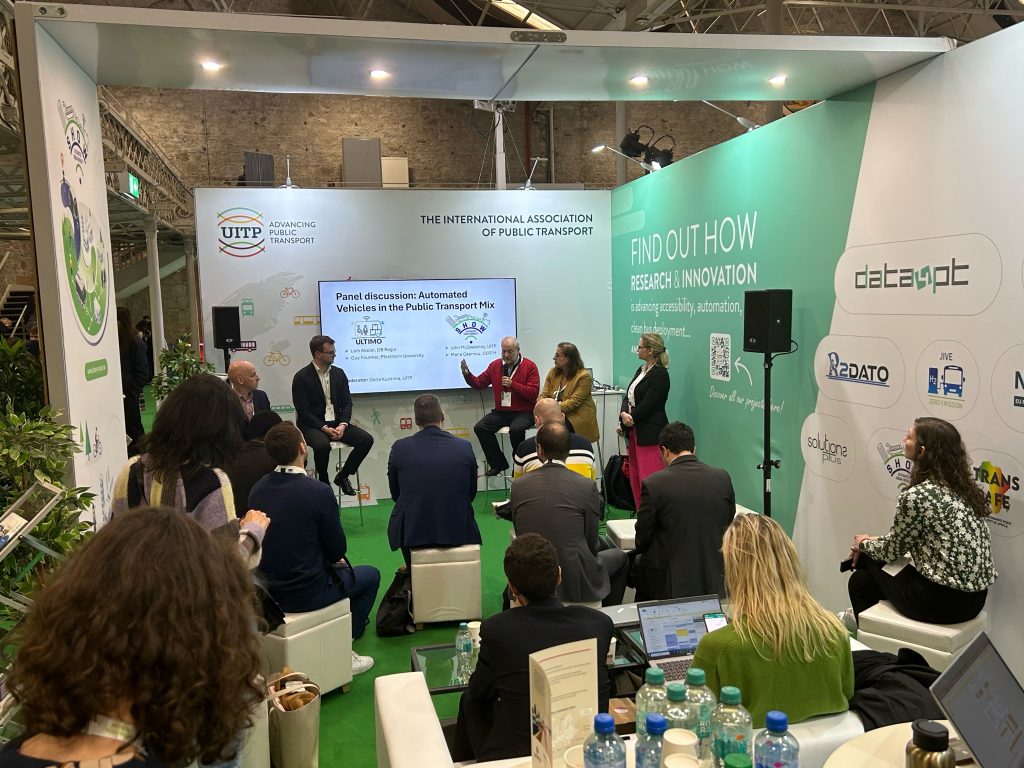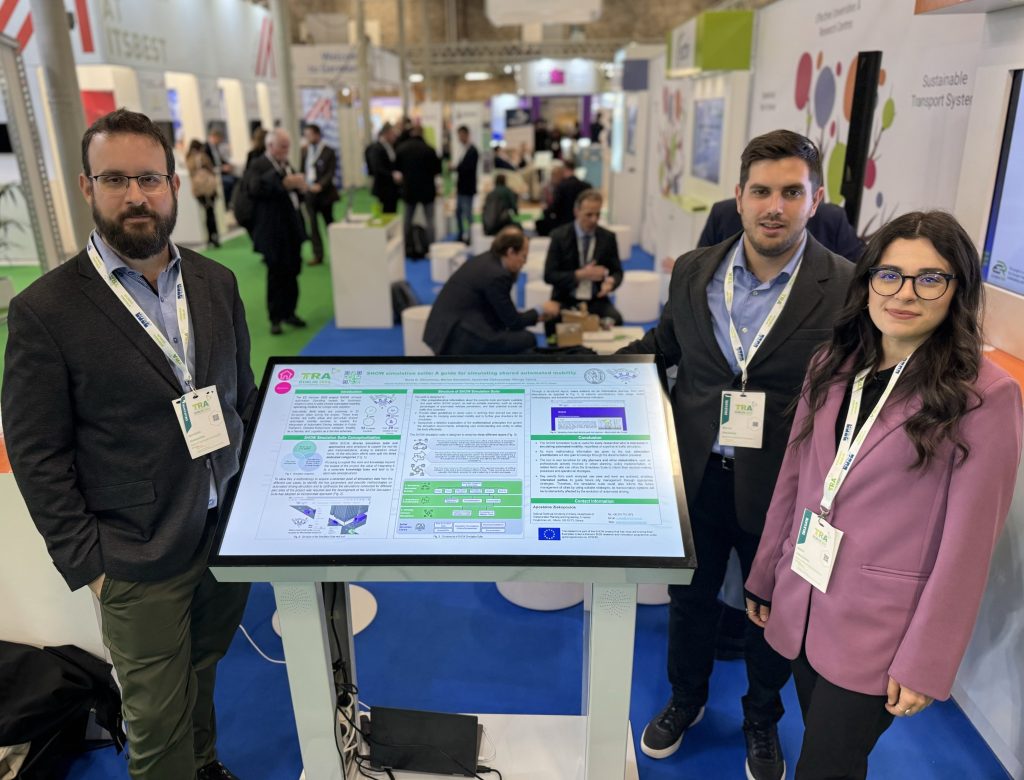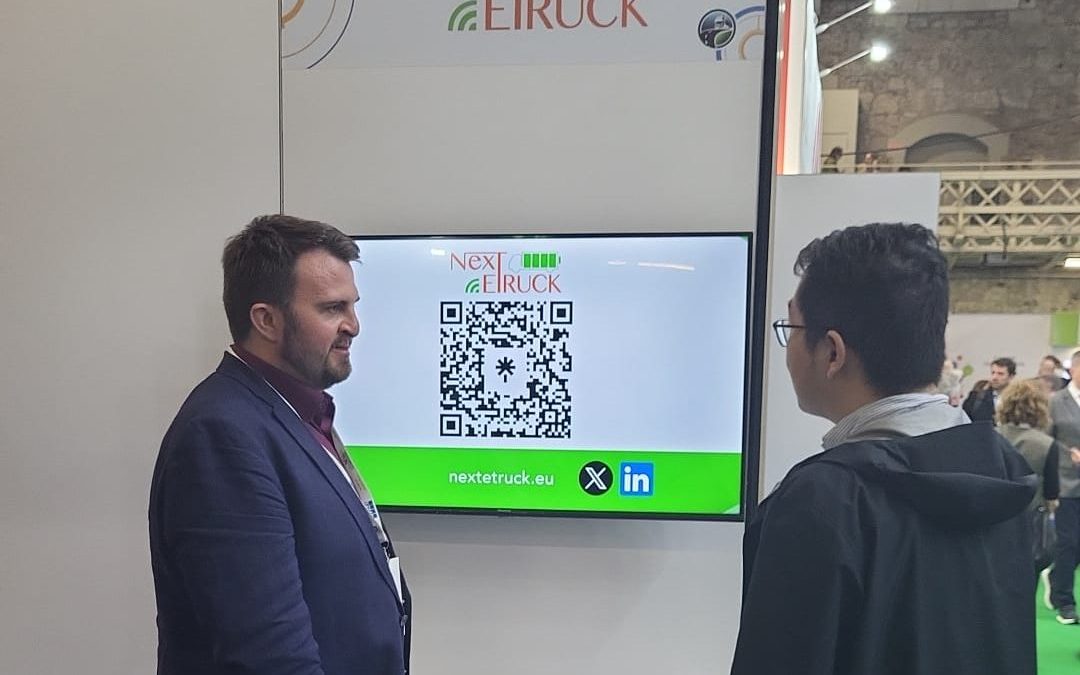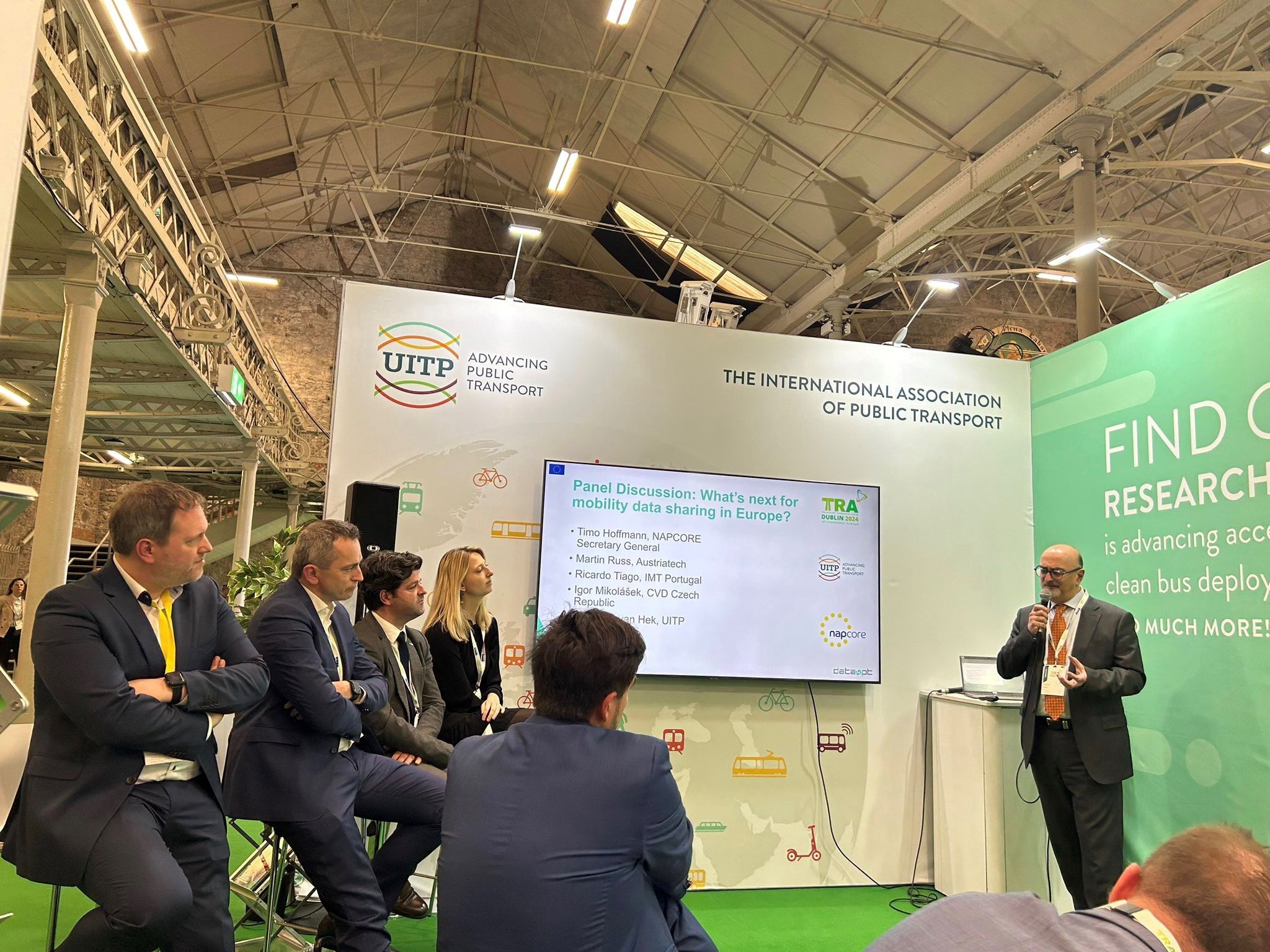ERTICO’s partnership projects had a strong showing at the Transport Research Arena (TRA), held this year from 15 to 18 April in Dublin. The bi-annual transport event, encompassing all modes and aspects of mobility, was a great occasion to disseminate projects’ objectives and results focusing on tackling core sectoral challenges and spearheading innovation.
Co-organised by the European Commission, TRA is Europe’s largest European transport and mobility conference focusing on research and technology in the field. Under the theme “Transport Transitions: Advancing Sustainable and Inclusive Mobility,” TRA 2024 aimed to foster dialogue between researchers, policymakers, and industry leaders on shaping the future of transport through innovation. ERTICO members and project partners actively participated in the event, showcasing the latest advancements and outcomes from their ongoing projects.
Paving the way for CCAM deployment
Several SHOW partners attended TRA to present their contributions to CCAM. They participated in panel sessions, and poster displays to share their experiences from demo sites and knowledge gained over the years. A key session discussed the state-of-the-art Automated Vehicles (AVs) in public transport, showcasing success stories such as the on-demand service in Frankfurt that filled the gap in narrow streets, improving accessibility, especially for the elderly. This approach aligns with the project’s goal of delivering user-centric services by prioritising user needs and requirements. Other relevant topics discussed during the session were safety and the impact of AVs on jobs, acknowledging that while some positions may be replaced, new opportunities will emerge.
SHOW partner NTUA presented research on simulating shared automated mobility and safety evaluation of automated shuttle bus services. TRA was also a scenario for collaboration. The session “Success Factors and Added Value of International Cooperation in the Context of Inclusive CCAM Services” discussed how the EU is working with countries like Japan and the US to deploy self-driving vehicles (AVs) for public transportation.


PoDIUM was represented by its Project Coordinator, Lazaros Gkatzikis from ICCS, during Special Session 4.4 which focused on “Multi-connectivity as a technology enabler of advanced CCAM Services.” The session explored the evolving landscape of Physical and Digital Infrastructure (PDI), highlighting multi-connectivity’s pivotal role in advancing Cooperative Connected Automated Mobility (CCAM) services. Discussions focused on concrete solutions for cost-effective and seamless infrastructure support for CCAM on a Pan-European scale, including Digital Twins, data exchange models, and collaborative mechanisms tested in real traffic conditions. The session also emphasised the necessity for collaboration among Original Equipment Manufacturers (OEMs), road and telecom operators to create a common roadmap and addressed the potential of a taxonomy to evaluate the impact of PDI support on operational design domain (ODD) extension.
SINFONICA took the stage during Technical Session 4.4.3 “Data Supported Case studies”. The Project Coordinator, Giulia Renzi (ICOOR), presented the inclusive participatory approach followed by the project in its four Groups of Interest in Europe. This approach facilitates the involvement of all citizens, including those with mobility challenges, in the transition to CCAM services, by allowing them to take an active part in the deployment process and express their concerns, needs, and expectations regarding the future of public transport. This ensures that the future of mobility is safe, inclusive, and accessible to all.
NAPCORE’s Secretary General, Timo Hoffmann, was at TRA and presented the ‘National Access Points in the European Mobility Data Space’ during a poster session. Attendees had the opportunity to network with NAPCORE members at the German Ministry of Digital and Transport booth. Discussions about Portugal’s implementation of MMTIS (Data4PT) and NAPCORE’s role in facilitating multimodal data sharing took place at the UITP Stand. Finally, a technical deep dive on “Enhancing accessibility and interoperability of mobility data” was presented on April 17.
Joost Vantomme, ERTICO CEO and DFRS General Assembly Chair, moderated a session on Transport Data Sharing. He presented the transportation sector’s challenges with outdated data systems and fragmented data, introducing DFRS as a success story of data sharing. The DFRS data ecosystem, built on a robust public-private partnership, is a prime example of successful Safety-Related Traffic Information (SRTI) sharing.
Driving innovation in clean and eco-mobility
The NextETRUCK project was featured at the ALICE Logistics Innovation Village alongside the other AEVETO Cluster projects ESCALATE, EMPOWER, ZEFES, H2HAUL and MoreLife. The different projects showcased their individual and collaborative efforts in driving the advancement of zero-emission road freight transport.

The eCharge4Drivers project participated in a lunchtime session at the European Commission’s stand together with sister project USER-CHI and the E-VOLVE cluster. Focusing on zero-emission vehicles, the session provided valuable insights into a broad range of technologies revolutionising electric mobility, including battery and power drive developments as well as innovations in charging infrastructure.
Two more projects working on sustainable mobility solutions, SOLUTIONSplus and eBRT2030, took part in a joint presentation at the UITP stand together with the TransSafeAfrica project. The presentation explored the role of EU-funded and of international cooperation to achieve sustainable urban mobility around the world.
Exploring logistics and infrastructure innovation
The PLOTO project was featured as well on the ALICE stand. Alongside its two sister projects, ReNEW and CRISTAL, PLOTO formed a dynamic hub dedicated to exploring topics such as inland waterways transport, logistics, and infrastructure resilience in the face of climate change hazards. Together, these projects fostered insightful discussions and innovative solutions aimed at addressing the challenges and opportunities within these critical domains.

